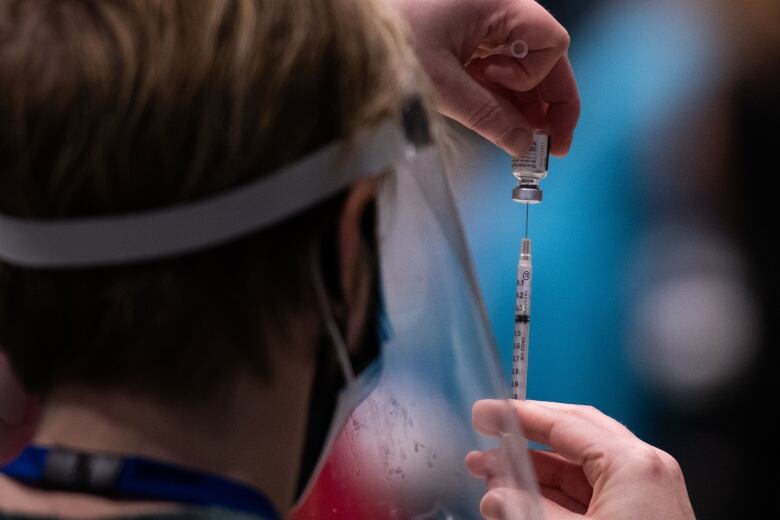Nurse vaccinated for COVID-19 tests positive
Positive test doesn't necessarily mean nurse has contracted illness, experts say

An Ottawa nurse has tested positive for COVID-19 about two weeks after getting vaccinated, and experts say there are a number of possibilities why that might be.
Santosh Baral said he was "speechless" when his results came back positive for COVID-19 last week after a routine test.
The positive test comes after receiving his second dose of the Pfizer-BioNTech vaccine on Jan. 8 and testing negativeon Jan. 13.
There are positive cases at the long-term carehome Baral works at, but he said to his knowledge, no other person who has received both doses of the vaccinehastested positive for COVID-19 since.
Baralsaid he feels fine, but is at homeself-isolating until he is sure it is safe to return to work.
"I thank God I [don't] have any symptoms so far, but who knows whatever is happening in my body. So definitely I have some anxiety," Baral said.
Immunized could still carry and transmit COVID-19
Clinical immunologist and allergist Dr. Zainab Abdurrahmansaid there are a number of possibilities why Baral could have tested positive.
It takes up to aweek to ten days after getting both vaccinations before becoming fully immune, so depending on the timing, she said a person could be exposed to the virusbefore the doses take full effect.
Abdurrahman added that while both the Pfizer-BioNTech and Moderna vaccines are 95 per cent effective,"there's a small chance that you could still catch COVID-19 after you're fully vaccinated."

"Although with the studies, we did seethose who did get it in that small percentage after being fully immune had very mild disease. So they didn't have as much of the severe cases of COVIDand this is not unlike any other vaccine," Abdurrahman said.
What's still unclear for researchers is whetherthe vaccine reduces the risk of carrying and transmitting COVID-19, Abdurrahman said.
Just because someone might be immune to the disease, it doesn't mean they can't carry or spread it, she said.
Vaccines not a replacement of other measures
Dr. Peter Jni,scientific director of Ontario'sCOVID-19 Science Advisory Table and professor of epidemiology at the University of Toronto, said without showing symptoms, it's hard to determine if Baral does in fact have COVID-19 or is just carrying the disease.
But Jni said immunized people testing positive "is nothing out of the ordinary," as more people get vaccinated across the country.
"What makes it, of course, a bit more extraordinary is the situation we're in right now with the mutations from Brazil, South Africa and the U.K.," Jni said, which are being evaluated carefully by researchers.
He said that while the vaccines areboth safe and effective, it's important to continue to follow other health measures.
"Even if you're vaccinated, you need to continue with physical distancing. You need to continue with wearing masks, especially because you want to protect others," he said.













_(720p).jpg)


 OFFICIAL HD MUSIC VIDEO.jpg)
.jpg)



























































































